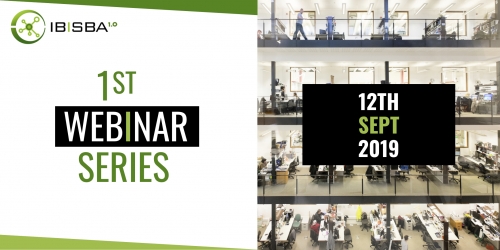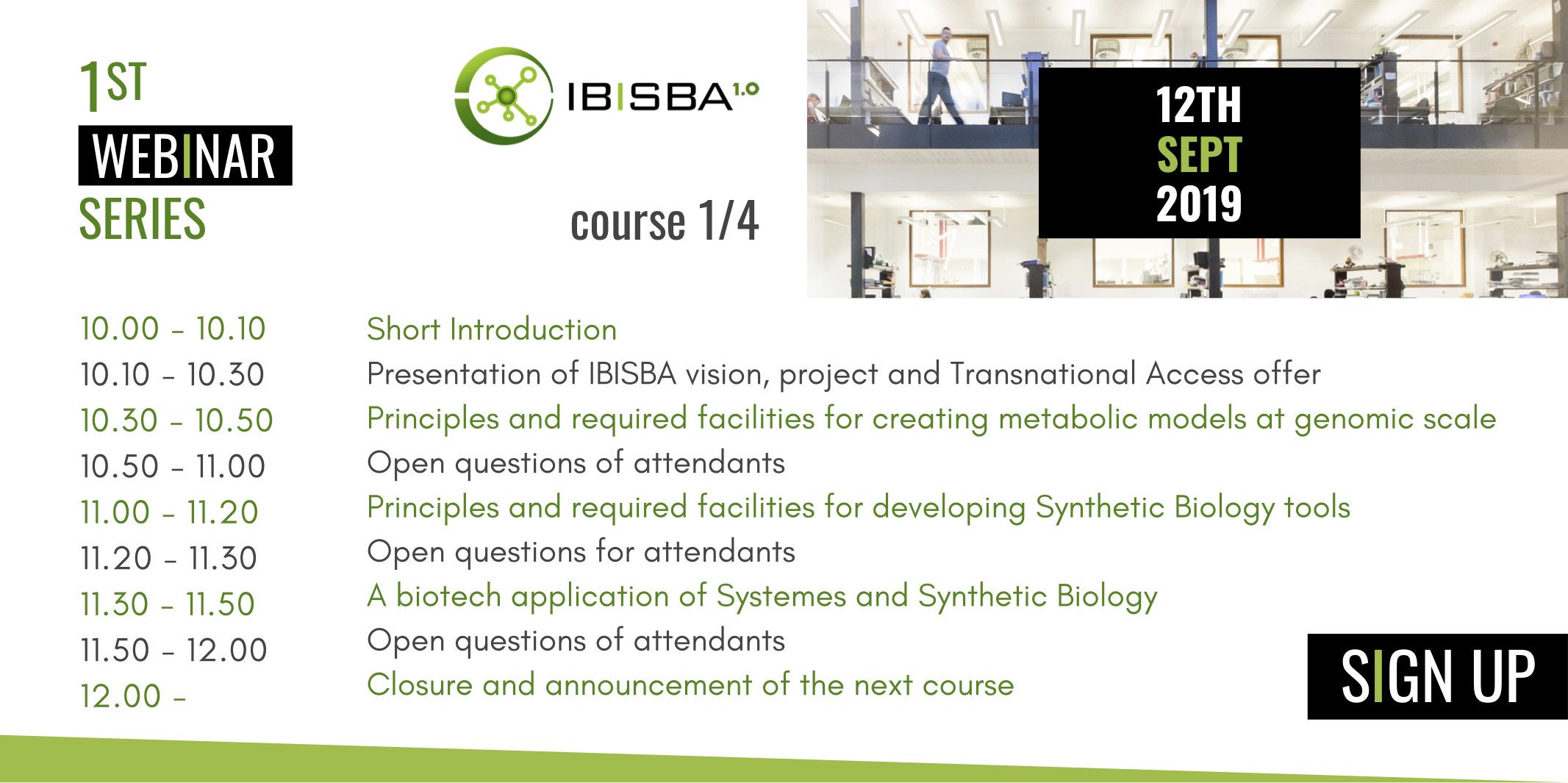
Next September 12th will be celebrated the first Webinar Series within the European Project IBISBA 1.0 to show how to accelerate research or technology and get subsidized access to top research infrastructures. The event is organized by the Centro de Investigaciones Biológicas researchers José Luis García, María Jesús Martínez and Jorge Barriuso, in collaboration with Juan Nogales, from the Centro Nacional de Biotecnología.
This webinar series will be structured in four courses which will cover aspects such as how to accelerate innovation and the commercial application of engineering biofactories using Systems and Synthetic Biology applied to Industrial Biotechnology to convert biobased resources into useful bioproducts such as pharmaceuticals, cosmetics and food products, materials, chemicals, and energy vectors. Moreover, it will show how IBISBA 1.0 is building the basis for an Pan-European Research Infrastructure promoting Industrial Biotechnology as a mature manufacturing technology to support the growth of the circular bioeconmy. Transnational Access (TNA) will provide researchers across Europe and beyond, from public and private sectors, the possibility to use large infrastructure dedicated to industrial biotechnology.
This first course, which will take place online on September 12th from 10 to 12 am, will describe the objectives of IBISBA 1.0, and will teach how to develop Synthetic Biology tools and biotech application of Systems and Synthetic Biology, as well as how to create metabolic models at genomic scale. Registration can be done here.

IBISBA 1.0 (Industrial Biotechnology innovation and Synthetic Biology Accelerator) is a H2020-funded project. It aims at building a European network of research facilities to provide innovation services and accelerate translation of bioscience research into industrial applications. It provides access to specialized research facilities for all industrial biotechnology professionals, including academic researchers, SMEs and large companies. In addition, IBISBA 1.0 develops a wide variety of activities, such as this Webinar Series, that will benefit the scientific community in Europe and worldwide.

